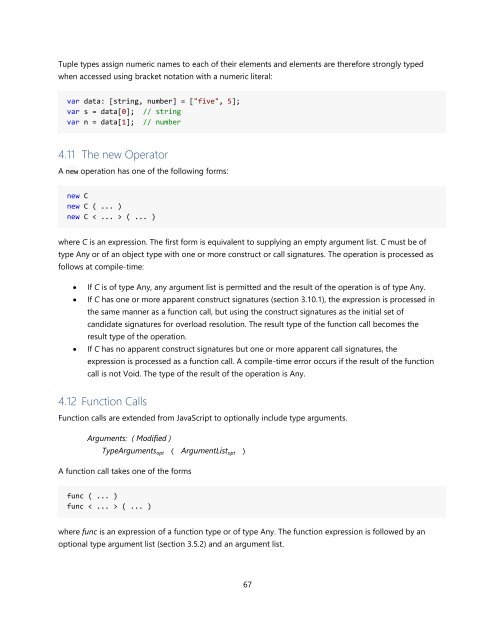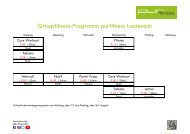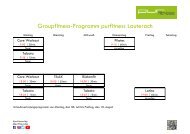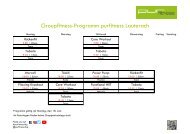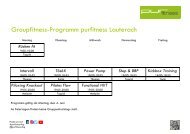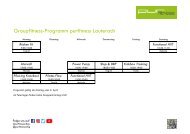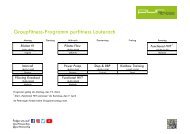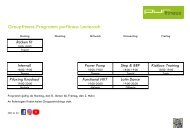TypeScript Language Specification v1.5
TypeScript Language Specification v1.5
TypeScript Language Specification v1.5
Create successful ePaper yourself
Turn your PDF publications into a flip-book with our unique Google optimized e-Paper software.
Tuple types assign numeric names to each of their elements and elements are therefore strongly typed<br />
when accessed using bracket notation with a numeric literal:<br />
var data: [string, number] = ["five", 5];<br />
var s = data[0]; // string<br />
var n = data[1]; // number<br />
4.11 The new Operator<br />
A new operation has one of the following forms:<br />
new C<br />
new C ( ... )<br />
new C < ... > ( ... )<br />
where C is an expression. The first form is equivalent to supplying an empty argument list. C must be of<br />
type Any or of an object type with one or more construct or call signatures. The operation is processed as<br />
follows at compile-time:<br />
<br />
<br />
<br />
If C is of type Any, any argument list is permitted and the result of the operation is of type Any.<br />
If C has one or more apparent construct signatures (section 3.10.1), the expression is processed in<br />
the same manner as a function call, but using the construct signatures as the initial set of<br />
candidate signatures for overload resolution. The result type of the function call becomes the<br />
result type of the operation.<br />
If C has no apparent construct signatures but one or more apparent call signatures, the<br />
expression is processed as a function call. A compile-time error occurs if the result of the function<br />
call is not Void. The type of the result of the operation is Any.<br />
4.12 Function Calls<br />
Function calls are extended from JavaScript to optionally include type arguments.<br />
Arguments: ( Modified )<br />
TypeArguments opt ( ArgumentList opt )<br />
A function call takes one of the forms<br />
func ( ... )<br />
func < ... > ( ... )<br />
where func is an expression of a function type or of type Any. The function expression is followed by an<br />
optional type argument list (section 3.5.2) and an argument list.<br />
67


